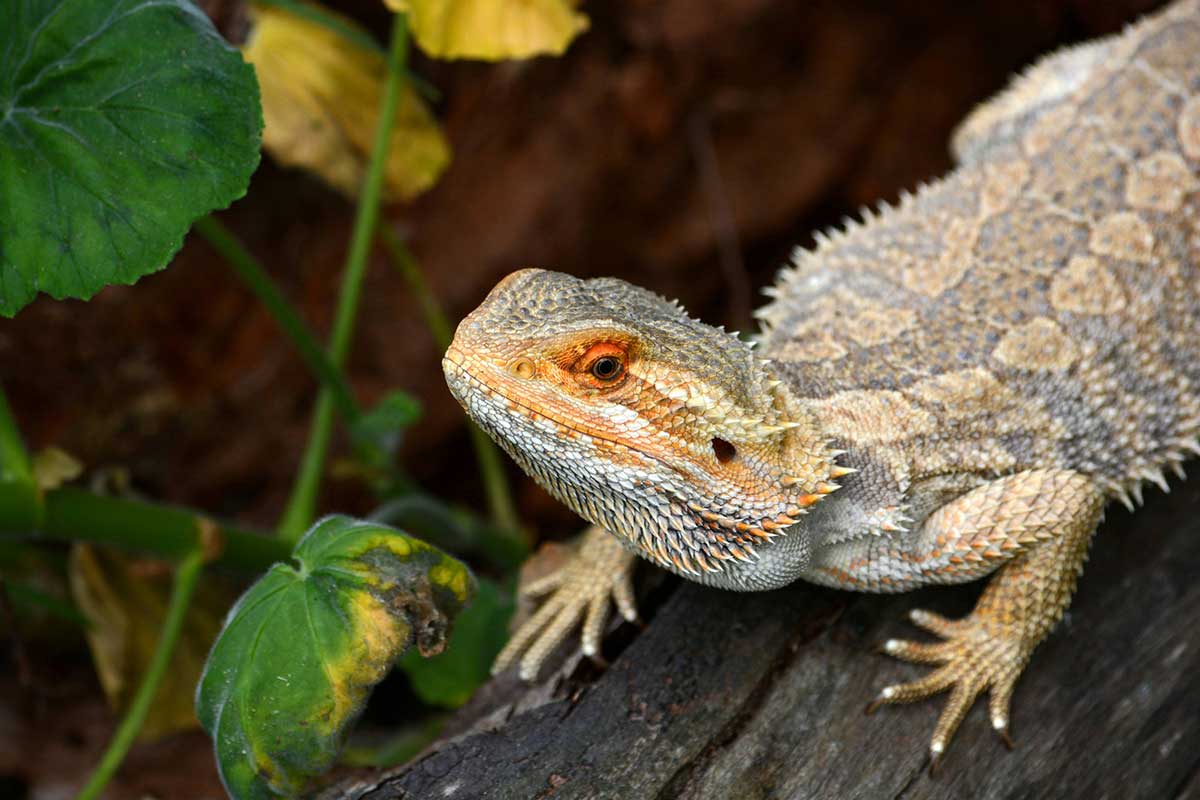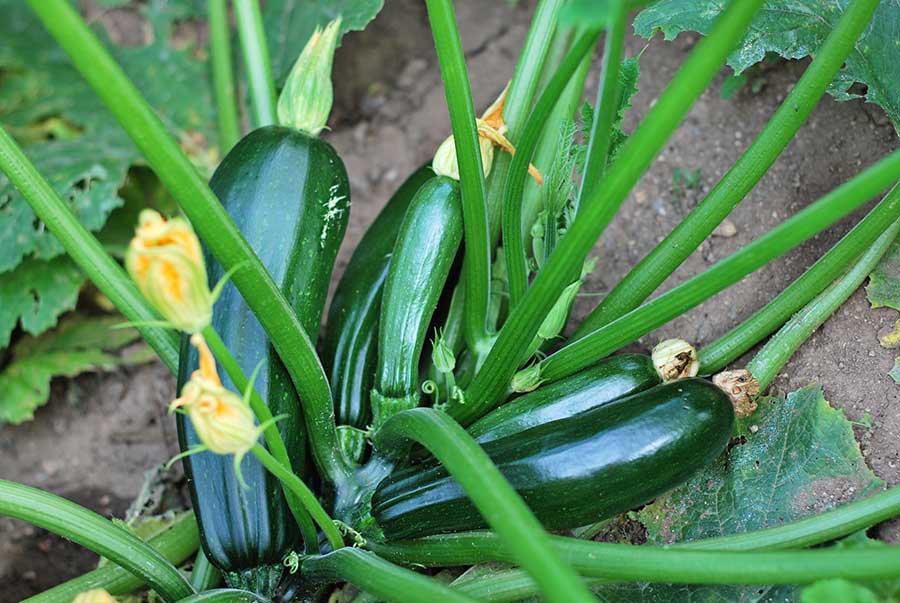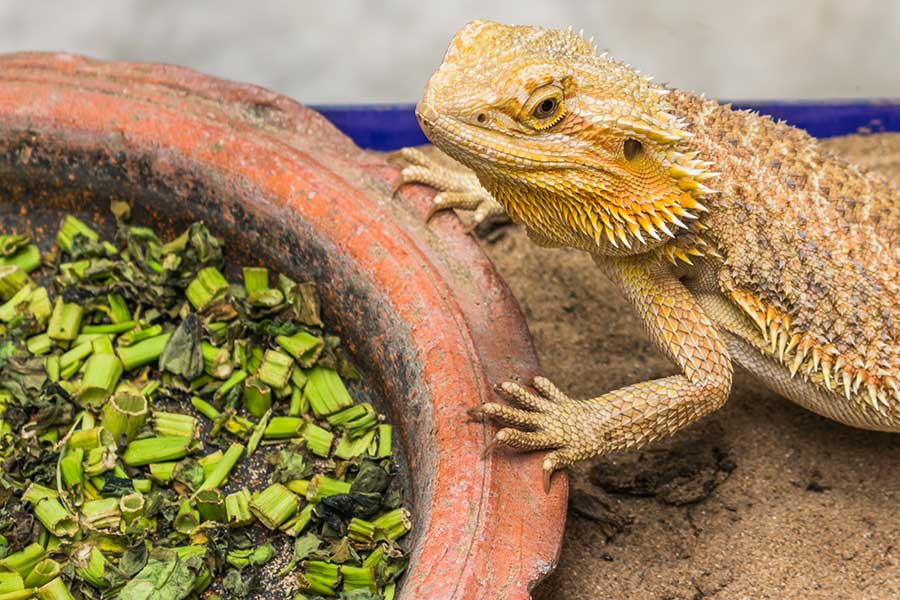One of the most important factors in raising a healthy and happy bearded dragon is ensuring they have a nutritious diet that promotes growth and energy. But what exactly should bearded dragons be eating? We’re publishing a series of articles on beardie nutritional health, and today we are asking whether bearded dragons can eat zucchini.
The short answer is: Yes, but occasionally.
Zucchini, known as courgette in some parts of the world, certainly isn’t toxic to beardies, and if they have a bit, they might enjoy it and it certainly won’t compromise their health. That said, zucchini should not be a regular part of their diet. The vegetable simply doesn’t contain the essential
In this article, we will explain exactly why zucchini isn’t great for beardies, and exactly why getting enough
Why Bearded Dragons Shouldn’t Eat Zucchini Regularly
Let’s be clear: zucchini is not toxic to bearded dragons. If they do manage to get their mouth on a portion and gobble it down, you shouldn’t expect to see them suffer from any adverse effects. But it’s certainly not something you should be actively feeding your bearded dragon on a regular basis. Why? It is all about the
Calcium is one of the most important nutrients in a lizard’s diet. They need it for healthy bone development, proper muscle function, and females need it to create eggs and maintain good reproductive health.
If they don’t get enough
It’s actually quite difficult for bearded dragons to get all the
Hatchlings need about 650 mg of
This is where zucchini fails as good food for a bearded dragon as it contains just 16 mg of
calcium per 100 grams of zucchini. So, they would have to eat an awful lot of it to get their dailycalcium needs.
But worse than that, zucchini is also high in phosphorus. This binds with
So, not only does zucchini not offer the
So, in short, while you don’t need to panic if your bearded dragon eats a piece of zucchini, it’s not something that you should intentionally be giving your beardie.
Best Vegetables for Bearded Dragons
So, if zucchini is off the menu, but your beardie needs plant matter to provide them with
First and foremost, leafy greens that are high in
When it comes to fruits and vegetables, the best choices are berries, especially blackberries, figs, papaya, squash, and sweet potatoes.
You can also “gut load” insects before giving them to your bearded dragon by feeding them
Read our article on the best greens for bearded dragons here.
You may also consider giving your beardie a
- Zoo Med Reptile
Calcium with Vitamin D3 - Fluker’s Reptile
Calcium Supplement - Zilla Reptile Health Supplies
Calcium Supplement
If you’re feeding your beardie a diet that is high in natural
Don’t Forget Vitamin D3
As well as making sure that your beardie is getting enough
Vitamin D3 is the type of Vitamin D that reptiles get from sun exposure through basking. While supplements exist, they just don’t do the job as well. About 12 hours of UVB exposure per day is considered ideal, so you should have a powerful UVB bulb in your lizard’s tank. Also remember that you need to change the bulb every six months for it to maintain its strength.
How Do You Know if Your Beardie isn’t Getting Enough Calcium ?
Having read all this, you will be forgiven for worrying that your beardie may not be getting all the
Consider the following symptoms:
- Laziness, lethargy, and a general lack of interest in doing anything
- Loss of appetite, which can quickly manifest as weight loss
- Constipation or otherwise irregular bowel movements
- Signs of stress
- Receding lower jaw or soft faw and facial muscles
- Swelling in their limbs or bumps in their bones, especially along the spine
- Frequent bone fractures or breaks
These are all very worrying signs of long-term
Read our complete beginner’s care guide for bearded dragons here.
FAQs
Do beardies like zucchini?
Many owners report that their beardies seem to quite like the taste of zucchini and gobble it up. But it does not contain much nutritional value for them, and they’re better off eating other vegetables that contain more
Is cucumber safe for bearded dragons?
Cucumber is safe for bearded dragons in moderation. But don’t give them too much as it contains a lot of water that can upset your lizard’s digestive system. It should also not be a staple in their daily salad as it does not contain enough
Can bearded dragons eat scrambled eggs?
Bearded dragons can eat cooked eggs, but this is a treat best reserved for adults and they should have no more than half an egg a day at an absolute maximum. Insects are a better source of protein for them. If you scramble eggs, make sure not to add any additional ingredients or seasoning.
The Verdict
Feeding your bearded dragon a diet that meets their nutritional needs is essential for raising a healthy beardie in captivity. They eat a range of animal-based proteins (mostly insects) and plant-based matter. They need lots of
This is why zucchini, while not toxic to beardies, shouldn’t form part of their diet. It contains very little
Do you have any advice on what to feed a bearded dragon? Share it with the community in the comments section below.





